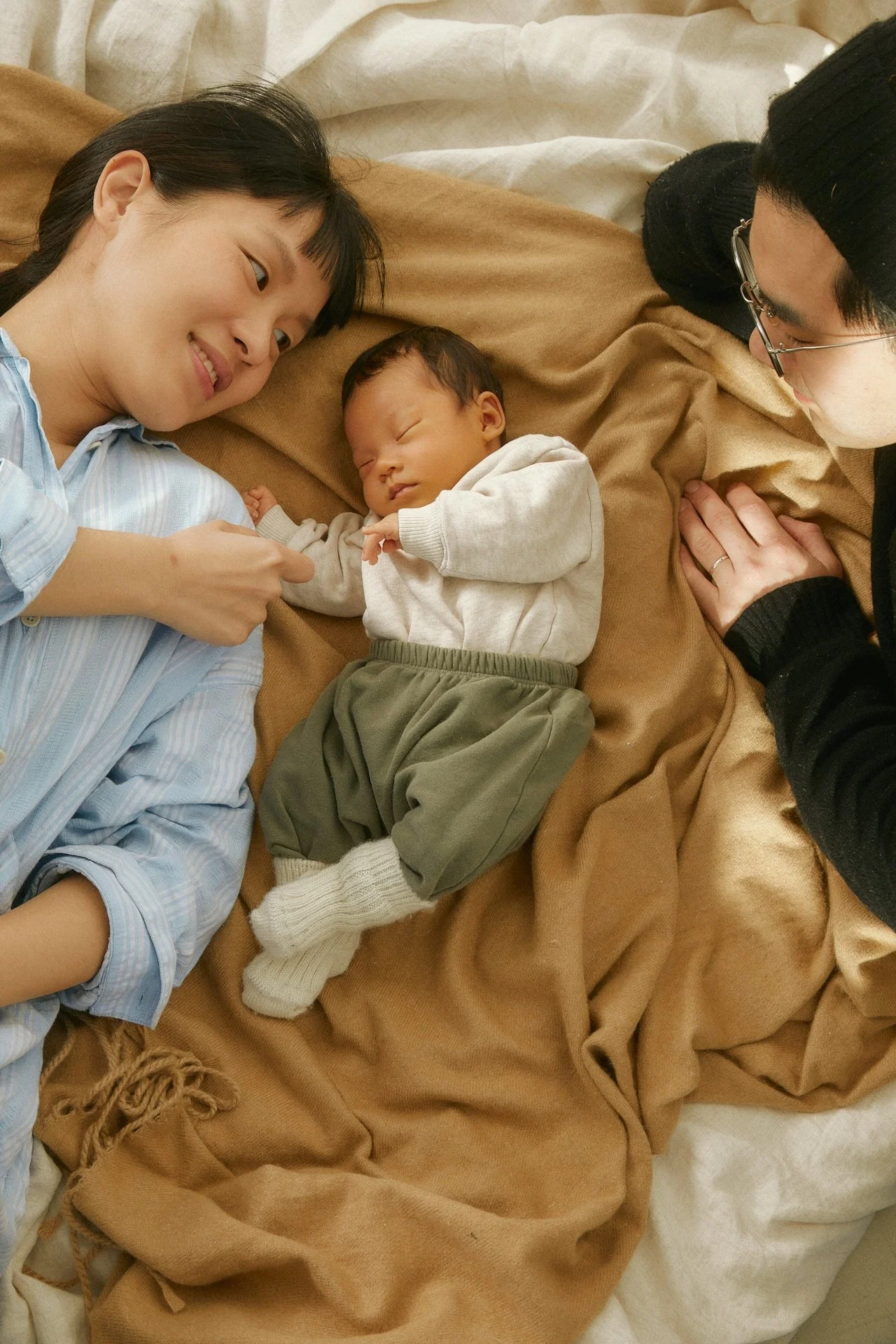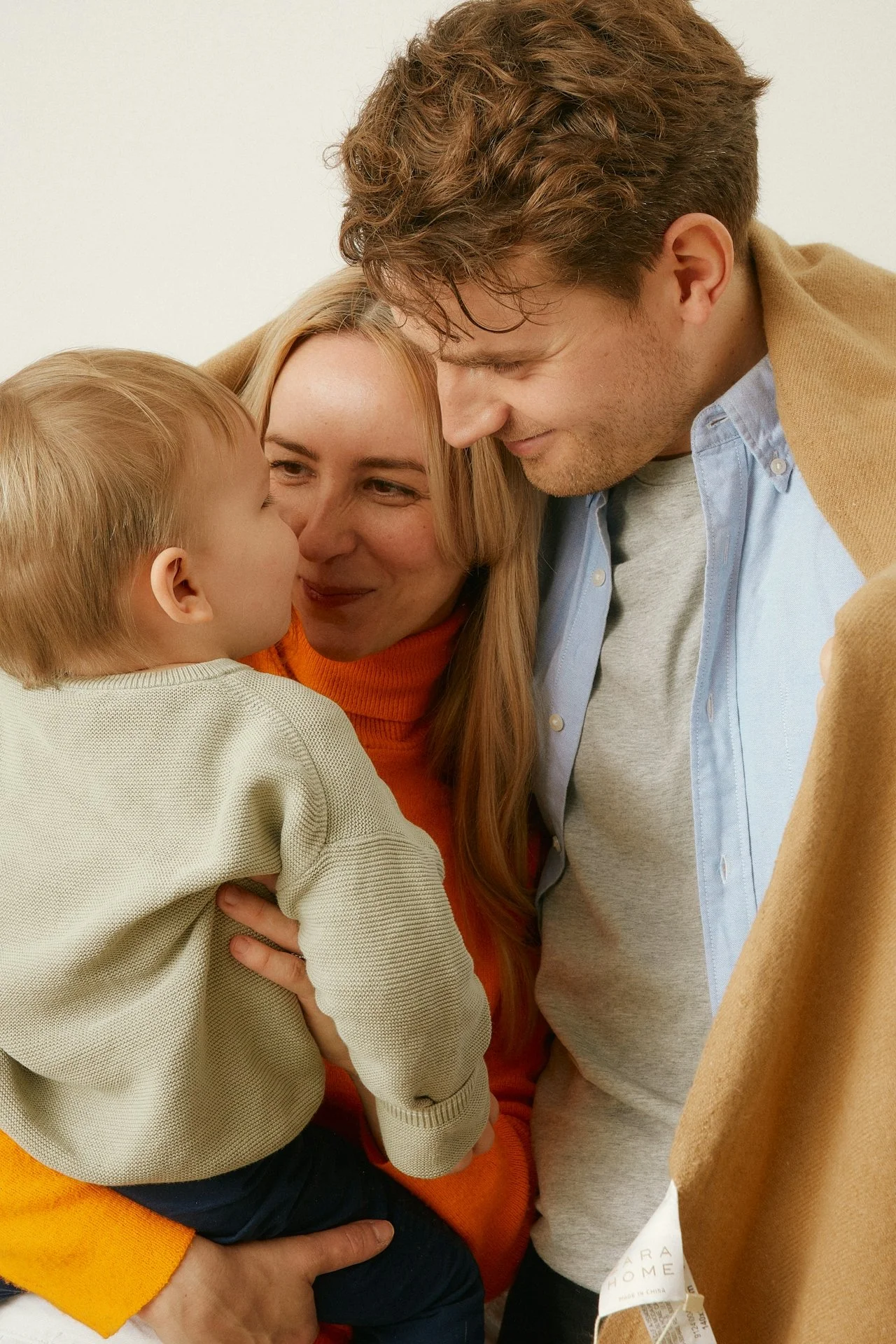Unexpected changes in family dynamics after having a baby: Why the start of motherhood can feel more complicated than you anticipated
By Dr Joanna Harvey, a Chartered Counselling Psychologist and Cognitive Analytic Therapist specialising in maternal mental health.
One of the (many) things no on ever really mentions before you have a baby is that your new arrival can transform your entire family system, as well as your relationship with yourself and your partner.
Whilst introducing your newborn to your family is often celebrated as a joyous occasion, for some it also simultaneously triggers underlying and unresolved family dynamics that can catch you off guard. When you had expected to be immersed in your newborn bubble but instead find yourself caught up in tension or even conflict with your parents, siblings or in-laws, it can feel very unsettling. Throw in sleep deprivation, huge hormonal shifts and the general emotional rollercoaster that is postpartum and it isn’t difficult to see how this can feel distressing.
Although it might have been the last thing you anticipated happening, having a baby raises the emotional temperature for everyone, which unfortunately provides a perfect environment for old family dynamics to resurface. It is much more common than you think but is often not openly discussed as it feels so far removed from the expectation that babies elicit nothing but happiness and excitement from others. It can even feel shameful to acknowledge dysfunction in your own family at a time that is supposed to be only joyful.
Understanding what might be playing out in these relationships can help you to navigate this complex emotional terrain as a new mum with more awareness and compassion for yourself. The birth of a child activates unconscious material across generations as the family units re-organise themselves around the baby. Your baby will remind you of your own childhood and your mother of her own experience of motherhood. These past experiences can determine how much conflict or tension arise postpartum as unresolved feelings come to the surface. If there was a lack of emotional warmth in your relationship with your own mother, you might find yourself longing to be cared for at this vulnerable time and becoming a Mum is a painful reminder of what you were deprived of. Alternatively, if you experienced your mother as critical or controlling, you might find yourself in arguments about how to best care for the baby as she unconsciously attempts to reclaim her role as the primary maternal figure. As frustrating as this can be, it is a common conflict that tends to resolve as the grandmother accepts her role and you grow into your new role as a mum.
Research has also shown that the increased levels of oxytocin that women experience postpartum in order to help them to establish a bond with their baby can also lead to increased sensitivity in other relationships. This might explain why you feel hyper-sensitive about any comments from your mother- in-law or your own partner that could be well-meaning, but instead feel like judgements or criticisms. Tension with your mother-in-law is a very well trodden path once you have a baby and it is not uncommon to feel that a relationship you once felt positively about becomes a source of angst for a period of time. You mother-in-law has to accept that she is no longer the principal woman in her son’s life and this can be a painful transition that plays out in undermining or making barbed comments about your mothering skills. It can help to view this less as a character assassination of you and more of her difficulties in adjusting to the new order.
For some families, sibling rivalry can also raise its head when a new baby arrives. As the new baby takes the limelight, your sibling might find this difficult and compete for attention by creating dramas in their own life that require the grandparents attention. As infuriating as this can be, not participating in the competition and focusing on your baby can help you to feel less angry or exasperated.
Although dealing with family dynamics is the last thing most new mums want to have to think about, you aren’t alone in finding postpartum peppered with family drama. Understanding these dynamics can provide relief from the guilt or confusion that often accompanies unexpected family tensions and recognising that emotional intensity and relationship challenges are a normal part of this transition can help you to shift your perspective. If family dynamics are causing you significant distress and you feel that they are taking up much more headspace than you would like, therapy is a good place to start processing these complicated feelings.
The postpartum period, while challenging, also offers unique opportunities for healing and growth. Old wounds may surface, but they can also be addressed with new understanding and resources. Relationships may be strained, but they can also deepen through navigating challenges together.
Moving Forward with Compassion
Understanding family dynamics through a psychodynamic lens doesn’t minimize the very real challenges of the postpartum period, but it can provide a framework for approaching them with greater compassion and insight. When family members recognize that their emotional responses may be influenced by unconscious processes and generational patterns, they can respond to each other with curiosity rather than defensiveness.
The arrival of a baby doesn’t just add a new member to the family—it creates an entirely new family system. Like any major transition, this process involves loss as well as gain, challenge as well as joy. By acknowledging the full complexity of these changes and the unconscious processes that influence them, families can navigate this transformation with greater awareness, patience, and ultimately, deeper connection..
Dr Joanna Harvey is a Chartered Counselling Psychologist and Cognitive
Analytic Therapist specialising in maternal mental health.
She lives in London
and is a mother of three young children.
Want to know more?
You can view Joanna’s profile here or check out her website www.drjoannaharvey.com
Follow Joanna on instagram here: @dr_joanna_psych





